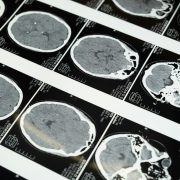Whether it’s a friend, coworker, or family member, many people know someone who had an addiction in the past or is currently struggling with one. Maybe you even see evidence of addiction in yourself. In any case, because addiction is a common challenge faced by people from all backgrounds and walks of life, it’s vital to be able to recognize its signs and symptoms as well as understand the potential consequences of living with it. In this article, we’ll cover all of this information and discuss what options there are for individuals seeking to their addiction.
What Is Addiction?
Addiction is a type of chronic mental health disorder that involves engaging in a behavior or using a substance even though it has negative consequences for the individual. When someone is addicted, they experience a loss of control over themselves and an inability to resist their urges due to the impact of the disease on their brain.
People can be addicted to anything, but some of the most common addictions include gambling, pornography, nicotine, alcohol, drugs (prescription and recreational), sex, food, the internet, video games, and shopping.
Signs & Symptoms Of Addiction
Addiction affects everyone differently. However, some of the most common signs and symptoms include:
- Anxiety or depression
- Trouble concentrating
- Paranoia
- Loss of interest in previously enjoyed activities
- Frequent intoxication
- Secretive behavior
- Mood swings
- Health problems
- Memory issues
- Poor performance at work or school
- Withdrawal from loved ones
- Sleep issues like insomnia or oversleeping
- Lack of personal hygiene
- Fatigue
- Missing work or school
Potential Outcomes Of Addiction
Potential outcomes of addiction can vary depending on how severe the addiction is, what resources the individual has at their disposal to cope, and what level of functioning they’re able to maintain despite their addiction. Some of the consequences people living with an addiction may face include:
- Job Loss: Individuals who are addicted may fail to show up to work regularly or perform poorly while there. Their addiction may cause them to be distracted at work, and they may engage in illegal or inappropriate activity while working, causing them to lose their job.
- Academic Decline: People with an addiction may have difficulty keeping up in school or fail to attend at all. This can cause their grades to drop, and they may even drop out or be kicked out of their program.
- Infidelity: Those addicted to pornography, sex, or both may be more tempted to cheat on their partners. Infidelity can have a lasting impact on a couple and their family, leading to separation or divorce as well as trauma for all involved. That said, it is possible to work through infidelity with a therapist’s support. for couples facing infidelity who would like to heal.
- Health Problems: Using harmful substances can have detrimental effects on the body, leading to health issues like cancer, lung disease, stroke, or the development of mental health conditions. Further, the possibility of an overdose increases a person’s risk of death.
- Trouble With The Law: From driving while intoxicated to accessing or distributing illegal content online, those who face addiction may be more likely to have run-ins with the law. Addiction often alters a person’s decision-making abilities, leading them to make choices they may not have otherwise made.
- Strained Relationships: One of the biggest consequences faced by people with addiction is strained or broken relationships with coworkers, friends, or family members. Someone experiencing addiction may gamble away their family’s money, fail to contribute to team projects at work, or neglect their friendships because they’re so focused on the object of their addiction.
Living with an addiction can be incredibly isolating and lonely. Even though isolation can make it even more challenging to recover, some people may withdraw from their loved ones instead of telling them that they’re experiencing addiction or have relapsed.
Life Beyond Addiction
There’s no doubt that addiction can be difficult to overcome, but it’s important to remember that no one is defined by their addiction and help is available. By finding the right support, resources, and tools, it is possible to take steps toward a more healthy, productive life. There are many potential paths toward recovery, including inpatient and outpatient programs, therapy, medication, and more. Reaching out for help from a professional can help those facing addiction find the right treatment plan for them.
The post first appeared on .



